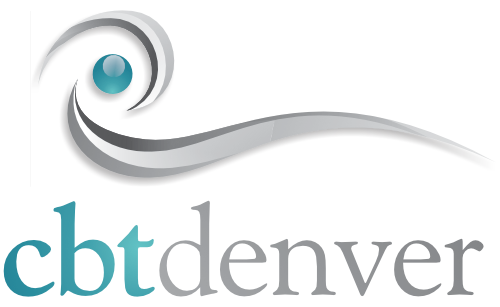Cognitive Behavioral Therapy (CBT)
Cognitive Behavioral Therapy (CBT) is a practical, short-term, results-oriented, evidence-based approach to psychotherapy. Cognitive behavioral therapy teaches people how thoughts and actions influence mood and other aspects of mental and physical health. Based on this insight, people are taught strategies they can use to overcome challenges on a daily basis. CBT is very flexible, and can benefit people with a myriad of mental health conditions, and even help people who have good mental health to better manage stresses to improve work, interpersonal relationships, diet, sleep, and overall resilience.
Combining Cognitive and Behavioral Therapy
CBT grew out of the combination of two different types of therapy: cognitive therapy and behavioral therapy.
Cognitive therapy focuses on how thoughts and beliefs contribute to negative feelings and actions.
Behavioral therapy focuses on how certain behavioral patterns originated and how they can be modified to positively effect mood.
Combining these two approaches leads to a robust, goal-oriented treatment strategy. The focus is on practical strategies that can be used today, tomorrow, and every day to improve feelings and function. These strategies are taught in a limited number treatment sessions that are laid out in the initial planning stages and are agreed upon by the therapist and patient. In addition, patients work on practicing strategies between sessions. Research shows that clients who do “homework” as part of CBT improve more quickly. By the end of treatment, patients have developed an effective toolkit that can help minimize or avoid recurrence of problems.
With the addition of mindfulness practice and philosophy, cognitive behavioral therapy has gained additional approaches to improve flexibility and effectiveness.
When CBT Is Effective
CBT is an evidence-based therapy effective in treating many different types of mental illness, including:
Mood disorders
Anxiety disorders
Eating disorders
Substance abuse disorders
Impulse disorders
Sleep disorders
Mood disorders include diagnoses such as depression, bipolar disorder, dysthymia, and seasonal affective disorder. Therapy teaches people struggling with mood disorders to identify thought patterns that contribute to mood problems and counter them by seeing their environment in a more realistic and generally less negative way. Positive feelings are encouraged by engaging in activities that their disorder might otherwise cause them to withdraw from.
Anxiety disorders respond well to CBT’s focus on thoughts and behaviors. By identifying automatic thought patterns that lead to a sense of danger, CBT helps people experience fewer and less severe symptoms of dread, anxiety, and panic, and to avoid being controlled by their fear.
Eating disorders, substance abuse disorders, and impulse disorders can be improved by identifying the thoughts that cause people to turn to food, substance abuse, or impulsive actions to help them cope. CBT gives patients skills that allow them to identify situations that would trigger consumption or indulgence in impulsive actions, and use other, healthier methods of coping.
Sleep problems often result from unhealthy management of stress or come as a side effect of certain behaviors that lead to poor sleep hygiene. By identifying the stressors or behaviors that underlie sleeping problems, patients learn to deal with them in a more beneficial way to achieve better sleep.
For more information about working with our CBT Denver experts in Cognitive Behavioral Therapy and many other types of therapy, please contact us.



